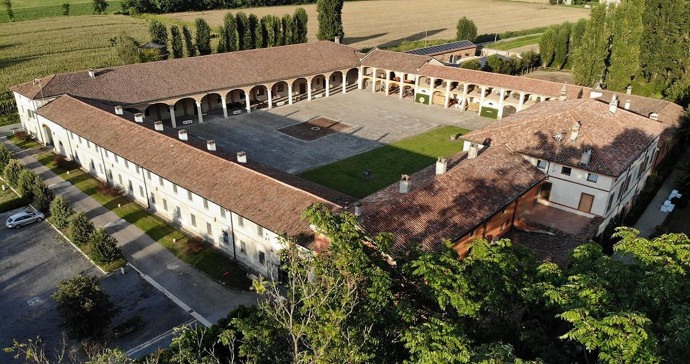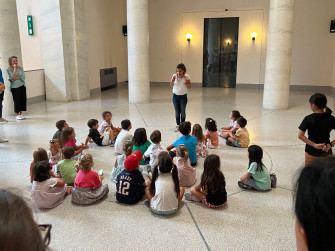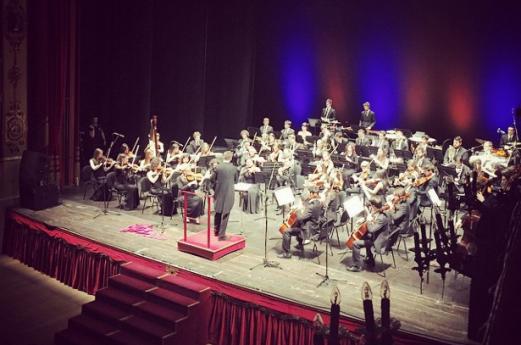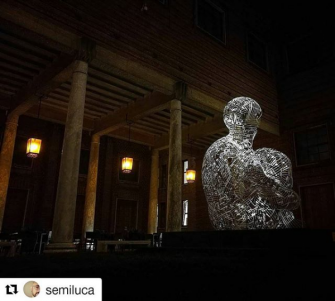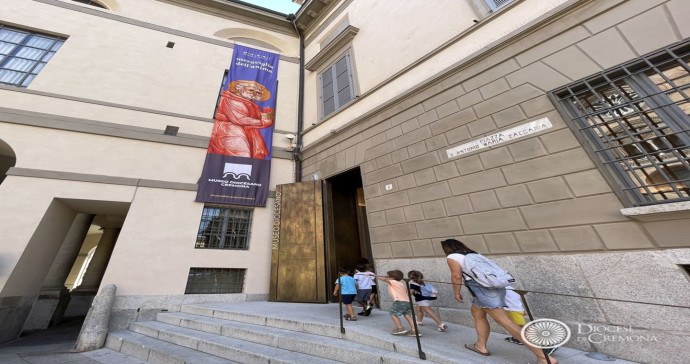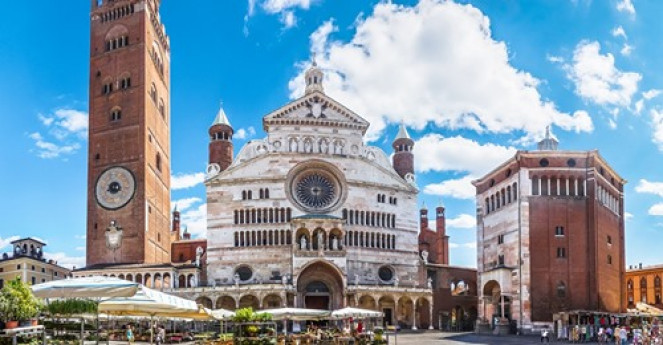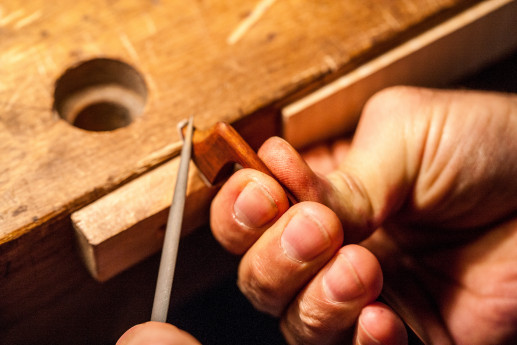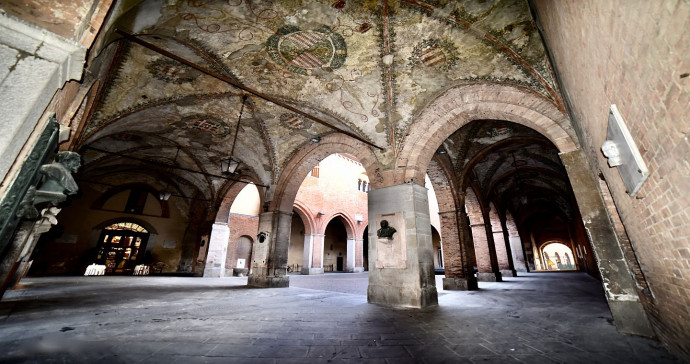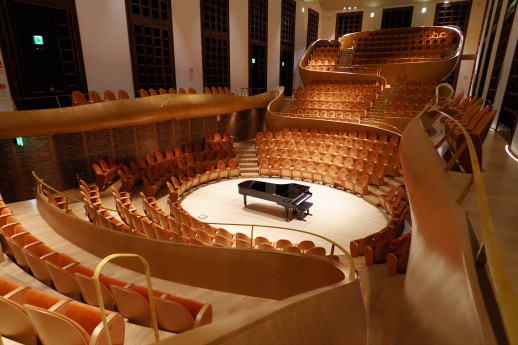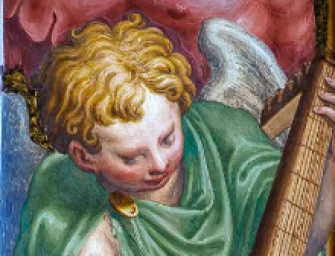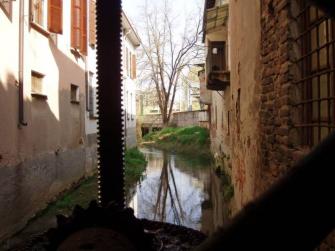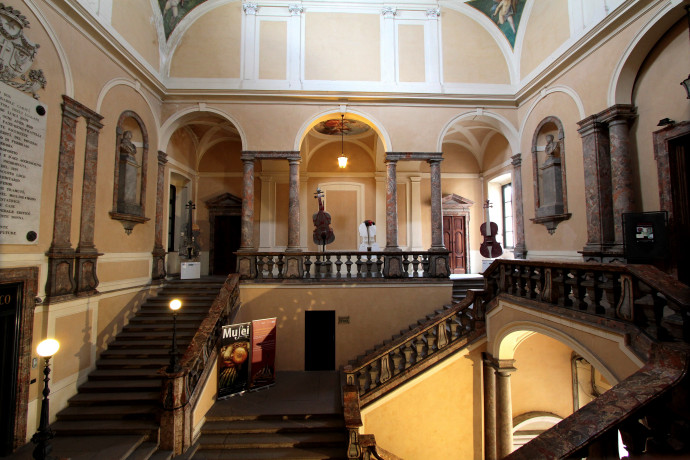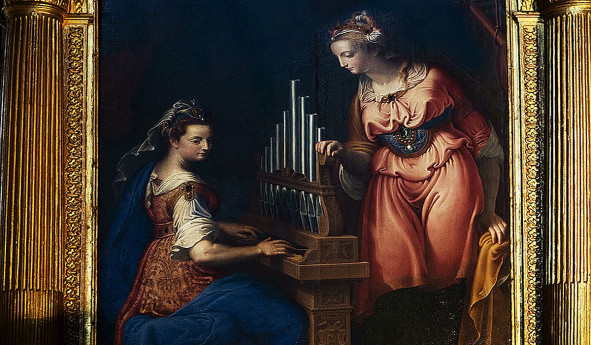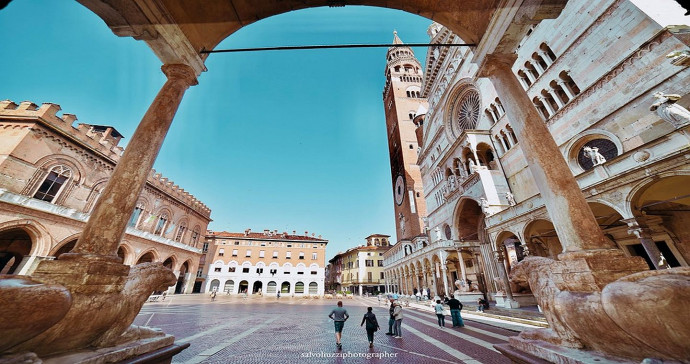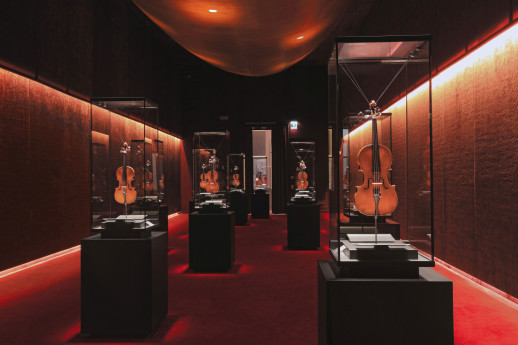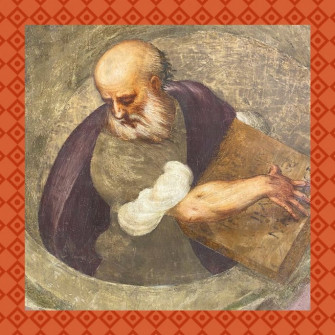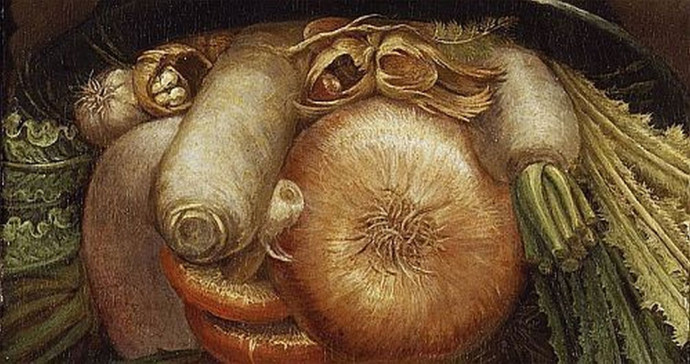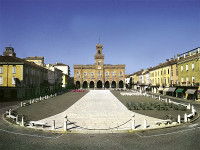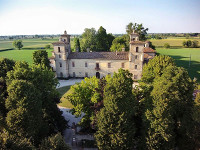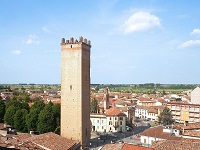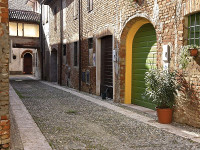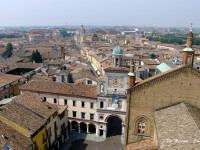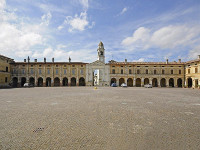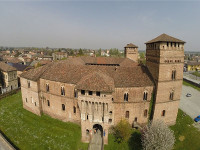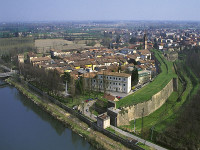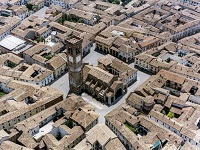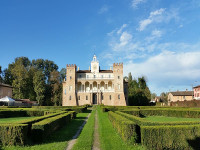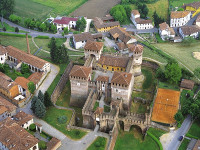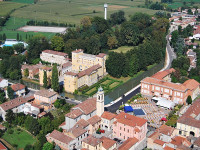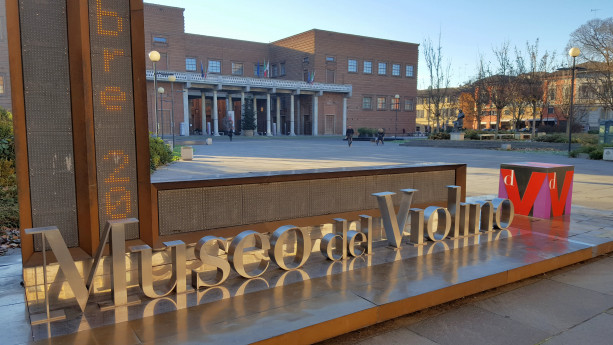- Art & Culture
- Religious Tourism
Bernardino Campi in Pizzighettone
Frescoes in the San Bassiano Church in Pizzighettone
The frescoes of the San Bassiano Church in Pizzighettone are a wonderful element of our territorial heritage and, to describe them, we can use the words of Mr. Piazza who works for the Regional Board in Mantua.
You are immediately impressed by Pizzighettone, independently from the point you decide use to enter the village. You can pass through the bridge on the Adda river or through Marconi Square but, in any cases, you can not ignore the beauty of this little village surrounded by its walls.
Considering its position on the border and in the middle of the area of Cremona, Crema, Lodi and Piacenza, Pizzighettone has often been at the center of important historical events and in the past it was the crossroads of cultures and trade. It represented an interesting area from the artistic point of view: the main buildings, from the walls to the remains of the ancient castle, remind us about these characteristics.
Also the little church dedicate to St. Bassiano hosts several artworks which are not adequately known. Entering it you can immediately realize that on the counter-facade there is a Crucifixion painted by Bernardino Camp. There are also the oculi with the Prophets along the central nave. They have been recently restored.
The decoration was started at the beginning of the fifth decade of the 16th Century, when the young Bernardino Campi, born on the 31st of December 1521, had recently concluded his training in Mantua: it is not a case that the Crucifixion is characterized by the elegance of the years spent in the town of Gonzaga family, where the protagonist was Giulio Romano with his group of assistants. The big dimensions of the fresco were probably decided on the influence of the previous experience of Pordenone in Cremona’s Cathedral. Mantua’s culture can be recognized also in the Prophets of the central nave who seem very similar to the Cesari painted by Tiziano for the room of Federico II Gonzaga in the Trojan flat of the Ducal Palace and which were then destroyed. The recent restoration of the Prophets in Pizzighettone allows to analyze better these characters and also to discover their names: Esdra, Malachia and Giosuè.
The perspective of the fake-oculi from which the Prophets lean out create an illusionist effect which was more impressive in the past. The transformations which took place throughout the centuries (Bernardino Campi painted also the presbytery of the Church but we do not have any tracks of that) can hamper the general overview on this cycle of frescoes which is one of the most important of the Italian entire mannerism.
If you catch the spectacular details of these paintings, you will totally enjoy your stay in Pizzighettone.
